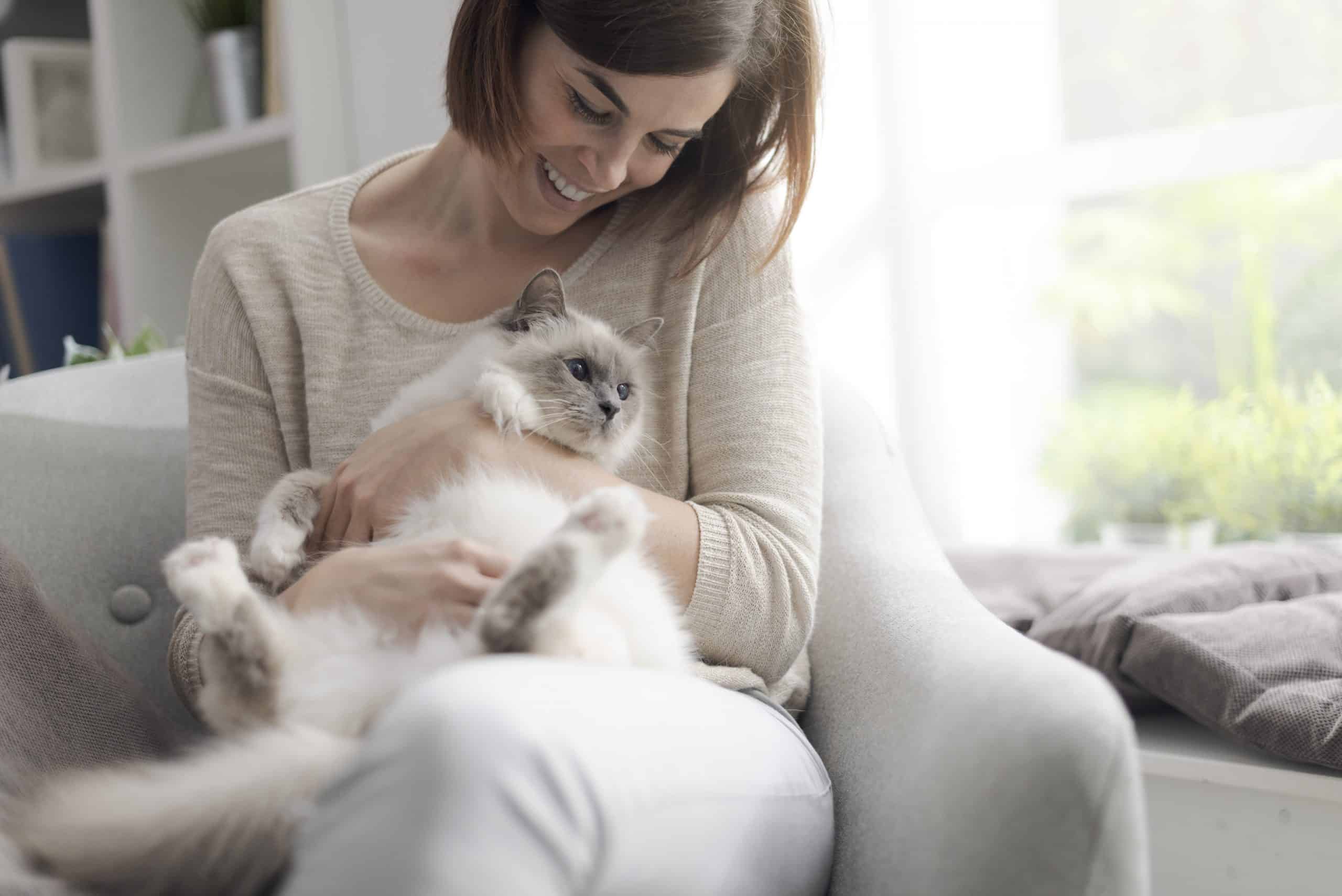Cats, our beloved feline companions, deserve the best care we can provide. Maintaining their health and fitness is crucial for their well-being and happiness. In this comprehensive blog, we delve into seven essential tips that will empower you to keep your furry friends thriving.
From nutrition to enrichment, each tip is carefully curated to address the specific needs of your feline family members.
By implementing these tips, you can create a holistic approach to your cat’s health, ensuring a long and fulfilling life by your side. So, let’s embark on this journey together, exploring the secrets to keeping your cats healthy, fit, and full of purrs.
Proper Nutrition
Providing your feline companion with a well-balanced diet is crucial for their overall health and well-being. A cat’s nutritional needs vary depending on their age, activity level, and health status. However, there are some essential nutrients that all cats require.
Essential Nutrients for Feline Health
*
-*Protein
Cats are obligate carnivores, meaning they must consume animal-based protein to survive. Protein provides the building blocks for muscles, organs, and other tissues.
-
-*Fats
Fats are an essential source of energy for cats. They also help absorb fat-soluble vitamins and provide insulation.
-*Carbohydrates
Carbohydrates provide energy for cats, although they are not as essential as protein and fats.
-*Vitamins and minerals
Vitamins and minerals are essential for a variety of bodily functions, including metabolism, immune system function, and bone health.
Benefits of High-Quality Cat Food
Feeding your cat high-quality cat food can provide several benefits, including:*
-*Improved digestion
High-quality cat food is easier to digest, reducing the risk of digestive issues.
-
-*Better skin and coat
Essential fatty acids in high-quality cat food promote healthy skin and a shiny coat.
-*Stronger immune system
Vitamins and minerals in high-quality cat food help boost the immune system, making cats less susceptible to infections.
-*Reduced risk of obesity
High-quality cat food is typically less calorie-dense than low-quality food, helping to maintain a healthy weight.
Regular Exercise
Exercise is vital for cats’ physical and mental well-being. Engaging in regular activities keeps them active, healthy, and happy.
Incorporating interactive play sessions into your cat’s routine is crucial. Engage them with toys like feather wands, laser pointers, and puzzle feeders that stimulate their hunting instincts and encourage physical exertion.
Cat Trees and Scratching Posts
Cat trees provide vertical space for climbing and perching, satisfying their natural instincts. They also offer scratching surfaces, preventing destructive scratching on furniture. Scratching posts serve a similar purpose, allowing cats to fulfill their scratching needs while protecting your belongings.
Preventative Healthcare

Regular veterinary checkups are crucial for maintaining your cat’s well-being. These exams allow your veterinarian to assess your cat’s overall health, detect any potential health issues early on, and provide necessary vaccinations.
Vaccinations
Vaccinations protect cats from a range of potentially life-threatening diseases. The following table Artikels the recommended vaccinations for cats:| Vaccination | Protection ||—|—|| Feline Panleukopenia Virus (FPV) | Distemper || Feline Herpesvirus (FHV-1) | Respiratory infection || Feline Calicivirus (FCV) | Respiratory infection || Rabies | Fatal neurological disease |
Dental Care
Dental disease is a common problem in cats, leading to pain, tooth loss, and other health issues. Regular dental checkups and professional cleanings can help prevent these problems.
Parasite Control
Parasites, such as fleas, ticks, and worms, can cause a range of health problems in cats. Regular parasite control measures, such as flea and tick treatments and deworming, are essential for maintaining your cat’s health.
Grooming and Hygiene
Maintaining a healthy coat and proper hygiene is crucial for a cat’s well-being. Regular grooming not only enhances their appearance but also promotes skin health, prevents mats and tangles, and reduces shedding.
Brushing and Bathing
Regular brushing helps remove loose hair, dirt, and debris, distributing natural oils throughout the coat. Short-haired cats may need weekly brushing, while long-haired cats require more frequent grooming, up to daily in some cases.
Bathing is generally not necessary for cats, as they are meticulous groomers. However, occasional baths may be beneficial for cats with oily coats or skin conditions. Use a cat-specific shampoo and avoid over-bathing, as this can strip away their natural oils.
Nail Trimming
Overgrown nails can cause discomfort and mobility issues. Regular nail trimming prevents sharp claws from scratching furniture or injuring the cat’s paws. Use a cat-specific nail clipper and trim only the tips of the nails, avoiding the quick (pink part).
Ear Cleaning
Regular ear cleaning helps prevent ear infections and other health issues. Use a cat-specific ear cleaner and gently wipe away any debris or discharge from the outer ear. Avoid using cotton swabs, as they can damage the ear canal.
Environmental Enrichment
Cats are curious and playful creatures, and providing them with a stimulating environment is essential for their physical and mental well-being. An enriched environment helps keep cats active, engaged, and reduces the risk of boredom and behavioral problems.
Interactive toys, such as laser pointers, feather wands, and puzzle feeders, provide mental and physical stimulation. Puzzle feeders, in particular, encourage cats to work for their food, which can help prevent obesity and cognitive decline.
Catnip and Pheromone Diffusers
Catnip and pheromone diffusers can also be beneficial for environmental enrichment. Catnip is a natural herb that many cats find irresistible, and it can stimulate playful behavior. Pheromone diffusers release synthetic pheromones that mimic the natural calming pheromones produced by cats, which can help reduce stress and anxiety.
Spaying and Neutering
Spaying and neutering are surgical procedures that prevent cats from reproducing. Spaying involves removing the ovaries and uterus of a female cat, while neutering involves removing the testicles of a male cat. These procedures are essential for maintaining the health and well-being of cats and have numerous benefits for both the cat and the owner.
Health Benefits
Spaying and neutering can prevent a range of health problems in cats. In female cats, spaying eliminates the risk of ovarian and uterine cancer, which are common and often fatal. It also prevents pyometra, a life-threatening infection of the uterus.
In male cats, neutering prevents testicular cancer and reduces the risk of prostate problems.
Behavioral Advantages
Spaying and neutering can also improve the behavior of cats. Female cats in heat can be restless, vocal, and prone to spraying urine. Spaying eliminates these behaviors and makes female cats more affectionate and calmer. Neutering male cats reduces aggression, roaming, and spraying.
Neutered male cats are also less likely to engage in territorial behaviors such as fighting and marking territory.
Procedure and Recovery Process
Spaying and neutering are typically performed when cats are between four and six months old. The procedures are relatively quick and simple, and most cats recover fully within a few days. During the recovery period, it is important to keep the incision site clean and dry and to restrict the cat’s activity.
Love and Affection
Providing love and affection is crucial for cats’ well-being. It strengthens their bond with humans, reduces stress, and improves their overall health.Building a strong relationship with cats requires regular interaction and attention. Engage in playtime using interactive toys or engage in grooming sessions.
Simple acts of petting, cuddling, and gentle handling demonstrate affection and create a positive environment.
Benefits of Love and Affection
- Reduces stress and anxiety
- Enhances the bond between cats and humans
- Promotes relaxation and contentment
- Contributes to a sense of security and belonging
- Encourages physical and emotional well-being
By providing love and affection, cats thrive in a nurturing environment that supports their physical and mental health.
Summary

In conclusion, maintaining the health and fitness of your cats requires a multifaceted approach that encompasses their physical, mental, and emotional well-being. By following the seven essential tips Artikeld in this blog, you can create a nurturing environment that fosters their overall health and happiness.
Remember, a healthy cat is a happy cat, and a happy cat is a cherished companion for years to come. Embrace these tips and witness the transformative power they have on your beloved feline friends.
Q&A
What are the most common health issues in cats?
Some of the most common health issues in cats include urinary tract infections, dental disease, obesity, and respiratory infections. Regular veterinary checkups and preventive care can help detect and address these issues early on.
How often should I bathe my cat?
Cats are generally very good at grooming themselves, so bathing is typically not necessary more than once every few months, or as needed. Over-bathing can strip their skin of natural oils, leading to dryness and irritation.
Is it important to spay or neuter my cat?
Spaying or neutering your cat is highly recommended to prevent unwanted litters, reduce the risk of certain cancers and infections, and curb undesirable behaviors such as spraying and roaming.
How can I tell if my cat is overweight?
Signs of an overweight cat include difficulty jumping, decreased activity levels, and a rounded belly. You can also feel your cat’s ribs and spine; if you can’t easily feel them, your cat may be carrying extra weight.
What are some signs of a healthy cat?
Signs of a healthy cat include a shiny coat, clear eyes, clean ears, and healthy gums. They should be active, playful, and have a good appetite. Regular veterinary checkups can help ensure your cat is getting the care they need to stay healthy.




